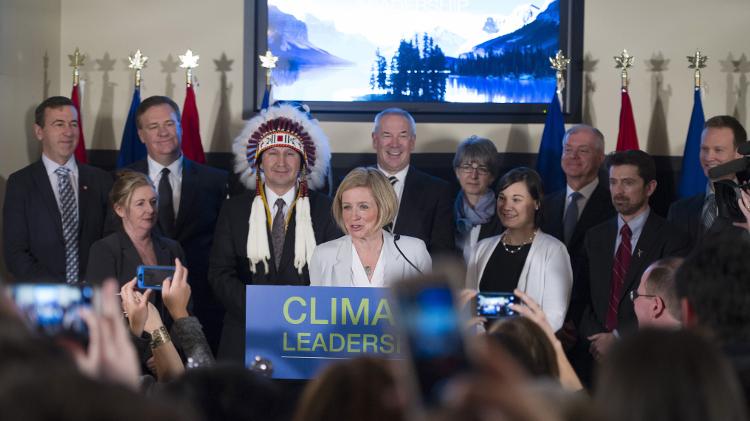The federal government is making good on its commitment to help combat corruption in the extractive sector. Canada enacted the Extractive Sector Transparency Measures Act (ESTMA) on June 1, which requires companies operating in the mining and oil and gas industries to report payments of more than $100,000 made to all levels of government, both at home and abroad, each year.
In 2012 the Mining Association of Canada (MAC), PDAC, the Natural Resource Governance Institute, Publish What You Pay-Canada and the Resource Revenue Transparency Working Group began designing a framework for legislative changes to increase transparency within the Canadian extractive sector.
“The act itself contributes to global efforts to deter corruption in the extractive sector,” said Ron Lyen, director of the international affairs division at Natural Resources Canada (NRCan). In 2013 Prime Minister Stephen Harper pledged to develop legislation that would establish a standard for mandatory payment reporting within the extractive sector by 2015. The United States and the European Union have also vowed to implement similar payment reporting legislation in the near future, noted Lyen.
The new act applies to corporations, unincorporated organizations, trusts or partnerships – as well as any entity that controls one of these – engaged in the commercial development of minerals or oil and gas projects in either the local or international market. These companies will either be listed on a Canadian stock exchange, have a fixed Canadian address or engage in business activity in Canada. Furthermore, a company will be subject to the act if in the past two financial years it has met two of the following three conditions: the company has a minimum of $20 million in assets, generated at least $40 million in revenue or has a workforce of at least 250.
Related: Thanks to ESTMA, impact and benefit agreements with Indigenous groups may soon see light of day
Ben Chalmers, vice-president of sustainable development for MAC, said ESTMA goes hand in hand with the Corruption of Foreign Public Officials Act, enacted in 1999, which aims to prevent Canadian businesses from bribing foreign public officials. The difference, he noted, is that ESTMA is meant to include the reporting of legitimate payments.
Under the new act, companies must report taxes (not including personal income or consumption); royalties, fees, regulatory charges, considerations for licences, concessions or permits; production entitlements; signature, discovery or production bonuses; dividends that do not include those paid to regular shareholders; and infrastructure improvement payments.
Reports disclosing these payments must be submitted to the Department of Finance within 150 days of the end of a company’s fiscal year. Companies are also required to publish these payments publicly.
Links to the reports will be available on a government website that has yet to be set up, Lyen said. However, he added, companies can decide whether to disclose these payments in their annual reports or in separate documents.
Chalmers acknowledged that the act will increase the burden on employees who prepare year-end financial documents, but it is important to see the bigger picture. “Mining companies spend a lot of time reporting on a lot of things,” he said. “But the view was that it is worth the effort to help ensure these flows of revenue from the companies to the governments are better used to better the communities.”
Non-compliance with the act carries penalties. By failing to report payments, knowingly including misleading or false statements in a report, or structuring payments to avoid reporting, companies could be liable to pay fines up to $250,000 upon summary conviction. Each is considered a separate offence and fines may compound depending on the number of days a company is found to be in non-compliance. Companies may also be required to submit supplementary information or documents if the Department of Finance requests a verification of compliance with the act.
Related: A look at 2015 legislation changes around the world
John Gravel, director of natural resources for professional services company Turner & Townsend, said ESTMA will make it easier for governments and investors to understand the cash-flows of projects they are backing, as well as help communities comprehend the direct benefits they receive from mining. His biggest criticism, however, is the size of the penalty for failing to follow the new reporting requirements. “The maximum penalty […] is far too low to make the law effective,” Gravel said.
When asked how ESTMA will impact mining companies, Julie Taylor, director of corporate communications and investor relations at New Gold, said it was too early to tell. “New Gold has been monitoring this initiative since its announcement, and given the act has only recently come into force and is still in the process of broader assessment, it would be premature to comment at this time,” she said.
Payments made to aboriginal governments are exempt from disclosure for the next two years. Only those payments made after June 2017 will be subject the following year to inclusion in the company’s reporting. The two-year timeframe was recommended by both aboriginal and federal governments to discuss the implementation of the new legislation.
“Our view was if [the act] were to include aboriginal governments, then it should do that with the consultation of aboriginal governments,” Chalmers said. “The two years is really intended to provide [the federal government] the time to work with the aboriginal communities around this issue.”
Lyen said the government is currently developing a plan for how it will engage Aboriginal Peoples during the deferral period.



